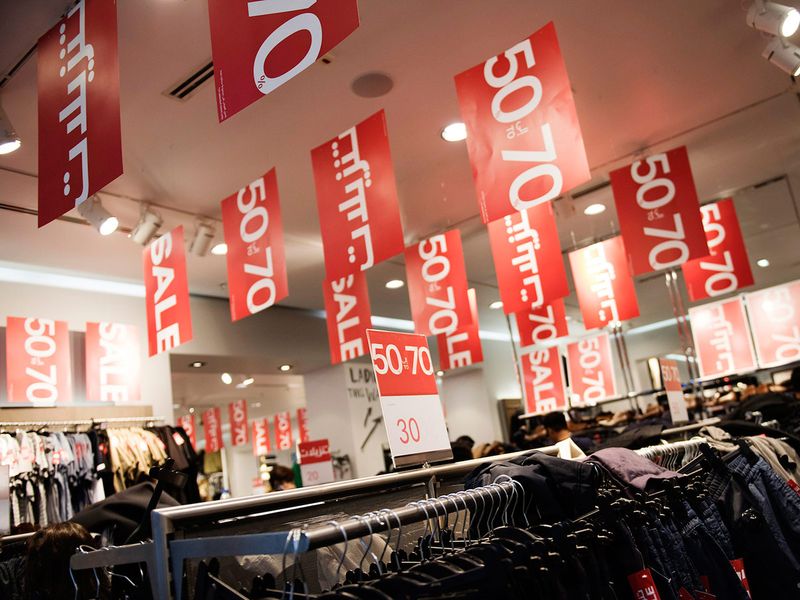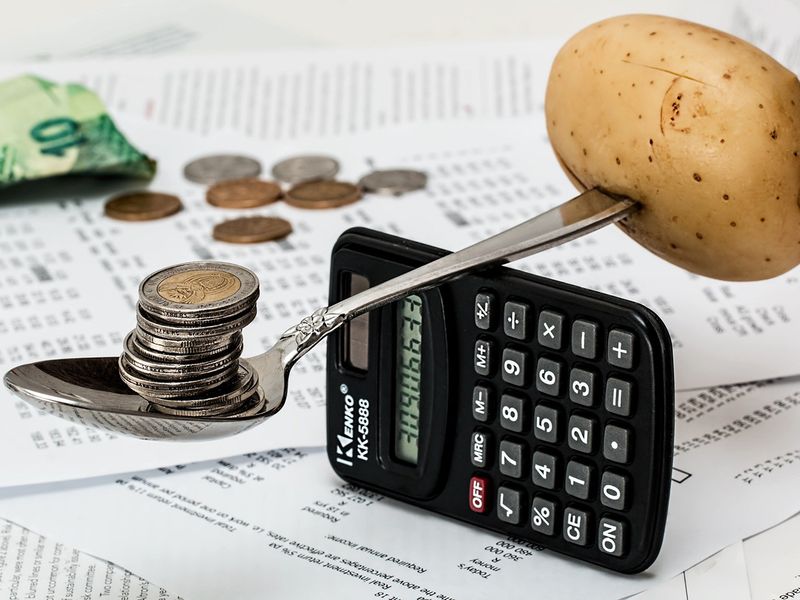
Highlights
Every careful planner who budgets their household and miscellaneous expenditures will agree that writing down is a great way to keep track of regular and planning for occasional expenses. For those who are keen to budget their expenses but find it a tedious process, we will share some quick and easy tips from an UAE-based Indian expat to get started.
Budgeting has become second nature for UAE-based Indian expat Amit Gomes in his mid-30s. He has maintained an itemised excel sheet since 2006 bearing a record of all his expenses [in India and the UAE]. Back in 2005, at the age of 15 when Gomes earned Rs500 (Dh25) from his first part-time job, he would carefully budget his monthly expenses. He would allocate 50 per cent for daily needs including food and travel, while setting aside 25 per cent for entertainment such as going out with friends and save another 25 per cent to buy things like shoes and clothes during the year.
Seeing how carefully my mother managed the monthly household expenses inspired me to plan my expenses too.
Gomes shared that budgeting is a skill that he picked up from his mother who is a “meticulous planner”. From regular groceries to gas cylinders as well as occasional spends his mother maintains a notebook to keep an account of every small and big expense. “Seeing how carefully my mother managed the monthly household expenses inspired me to plan my expenses too. Since I got my first part-time job, I wanted to make sure I saved up for events and items that were important for me rather than frivolously spending cash on things I didn’t really need,” Gomes said.
Keep an itemised record of expenses
When Gomes moved to the UAE more than a decade ago and his monthly earning increased considerably, he continued the practice of budgeting. “Irrespective of what we earn, I think budgeting is a good practice because it helps us to assess our spending pattern while accounting for unforeseen expenses. It took me a few months to get a broader understanding of costs here in the UAE and forecast expenses. But once I figured that, it was easy to achieve my budgeting goals. I also realised that if I earned around Dh5,000 [at that time] it would help me to manage my expenses and save too.”

Here’s a concrete example of how the itemised excel sheet helped Gomes to economise his monthly grocery shopping soon after he arrived in the UAE. To understand where he could do his monthly grocery shopping most affordably, every month Gomes did his grocery shopping from one specific supermarket. “I did this exercise for three months in a row covering three different brands and then based on my experience stuck to the one that was most affordable. Eleven years on, I still shop from the same supermarket, while buying occasional stuff from the local marts and a Thai supermarket in Karama. This helps me to keep my monthly grocery expenses at Dh300.”
The itemised excel budgeting sheet also helps me to categorise annual expenses. I can forecast large yearly spends and save for these in parts.
“The itemised budgeting sheet also helps me to categorise annual expenses. I can forecast large yearly spends and save for these in parts. For example, I save Dh500 every month for travel so when I do go on holiday, I don’t cause a major dent to my monthly income. Having said that, we also make provision for Dh1,000-2,000 extra during leisure travel, an area that we don’t like to compromise on. I also save to build a contingent emergency fund to which I contribute Dh500 monthly. If I’m fortunate to not have any emergency, I invest that money at the end of the year [usually in National Bonds]. So, it’s a two-fold benefit,” Gomes added.
Tip to economise grocery shopping: Besides tracking monthly grocery expenses, Gomes also shares a few practical tips to further economise grocery shopping. Gomes always carries a list of things to buy to avoid ambling around aisles in supermarkets that inevitably leads to impulse purchasing. He also clubs a few chores along with the weekly grocery shopping to optimise fuel costs while making it fun, especially when grocery shopping is clubbed with an outing with friends.
Look out for deals
Gomes is a big believer in availing the right deals – be that offers on grocery items or while eating out. For example, before going for grocery shopping, Gomes looks up ongoing deals that often helps him to buy non-perishable items in bulk at attractive prices.
Despite being a foodie, Gomes is able to keep his eating out expenses to Dh550 per month, again by carefully budgeting. “Every month my wife and I eat out at least six to eight times. So, we plan our food outings in a manner where we go to an upmarket place once or maximum twice, rest of the time eating at pocket-friendly places. Thankfully both of us like a lot of restaurants in old Dubai that aren’t very expensive. While eating out at fancy places, we avail ‘two for one’ deals on apps.”
As inflation in the UAE is relatively low, I haven’t had to make major changes to annual expenses, but I compare my yearly expenses to ensure that I’m staying on track with my spending pattern.
Tip to make the most of expenses: Gomes uses one credit card to make all purchases and pay bills. This helps him to earn cashback with which he even managed to buy a ticket for his trip to Sri Lanka three years ago.

Review the budget sheet
“I review my budget sheet quarterly,” Gomes shared. “As inflation in the UAE is relatively low, I haven’t had to make major changes to annual expenses, but I compare my yearly expenses to ensure that I’m staying on track with my spending pattern. For instance, in 2013-14 I realised that I had spent a ridiculous amount of money on household stuff like cleaning agents and toiletries. One close look at the sheet and I understood how I was overspending on certain items. So, I decided to buy in bulk availing seasonal offers and saved almost 30 per cent. Now I spend Dh350 annually on this category.”
Gomes also shared how his itemised budget sheet pulled him through during a rough phase.
“I lost my job a couple of years ago and had to make certain financial adjustments immediately. I referred to my itemised budget sheet that helped me to instantly go through my expenses and adjust per category. It was easy to identify expenses that I could do without and create a leaner expense plan until I got employed. I reduced my entertainment expenses including cinemas and coffee outings and eating out by over 50 per cent and fuel expenses too, which was around Dh150 per month in 2020. But in 2021 I made an upward revision as my fuel expenses have gone up, roughly Dh500 per month, as I’ve to travel for work. Even though I don’t have to pay house rent, an itemised sheet can help people make upward provision of say 10 per cent increase in rent every year that’s a non-negotiable expense.”
Although I budgeted every expense from an early age, my attitude towards savings was slightly flawed initially. From 2013 I became more careful about savings.
Despite being a mindful budgeter, Gomes admitted that he could have been more prudent about financial planning. “Although I budgeted every expense from an early age, my attitude towards savings was slightly flawed initially. I’d save whatever was left at the end of the month instead of keeping money aside as savings at the beginning of the month. From 2013 I became more careful about savings,” he added.
Tip to track annual spending: Gomes shared that at the end of the year he refers to the itemised budget sheet to track his annual spending and if he has exceeded in any category. Up to 5 per cent of increase under any category is acceptable to him [factoring in inflation]. But if spending under any category exceeds by 10-15 per cent, Gomes revises the budget for the following year and tries to make up for the excess spending.

Some useful budgeting tips
When asked for three tips for beginners who are looking to budget their monthly expenses, Gomes shared three simple yet useful tips to start with:
• Create or download a budget worksheet, list expenses and review it monthly. Budgeting templates are easily available online. There are free and paid apps too that help to track expenses. For example, Gomes had used Expensify for a while.
• Understand needs versus wants. Follow the 50/30/20 rule. Fifty per cent of expenses on necessities 30 per cent on non-essentials and 20 per cent towards savings.
• Plan large expenses in advance. For example, holidays, car purchase, children’s education and home maintenance, among others. This will help in avoiding financial pressure during a particular month or a quarter.








